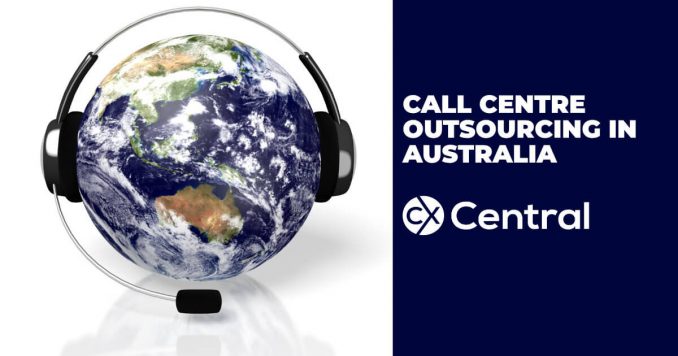
The facts about Call Centre Outsourcing in Australia
If you have a call centre in Australia that handles inbound and outbound customer service, sales, technical support and other call centre services you may have already considered outsourcing some all of your call centre.
Update: With COVID-19 now wreaking having across the world, many businesses are looking for call centre outsourcers in Australia to quickly help with taking calls due to increased demand or because their offshore call centre is no longer able to provide support.
Read our free article with tips on how to manage contact centres through CVOID-19 >>>
Deciding the location of the call centre is often one of the first considerations and there are certainly some cost advantages of using overseas call centres.
Even if you wanted to keep your call centre service within Australia, it can be overwhelming trying to understand the risks and benefits of outsourcing your customer experience to another business.
Most of the available research material online largely consists of content written by call centre outsourcers who, of course, are trying to explain the virtues of their respective businesses and why you should outsource with them rather than present an objective overview about contact centre outsourcing in general.
But don’t worry, you’ve landed in the right place.
I’ve worked in the contact centre industry close on three decades and spent a fair chunk of that time working specifically in and around call centre outsourcing.
This article aims to provide you with a vendor-agnostic, marketing free overview on the why, where and how to outsource call centre functions if you are an Australian business.
3 Benefits of call centre outsourcing
Before we worry about outsourcing specifically in Australia, there are some common benefits of call centre outsourcing regardless of the location:
1. Access Instant Expertise
Call Centre Outsourcers are industry professionals who have honed their professional skills over decades of running call centre operations.
And unlike your business which no doubt specialises in something, running efficient and effective call centres is the outsourcers core business.
Their business literally lives or dies on how they serve your customers so they are very much invested in ensuring they get it right.
So let them focus on managing the customer experience while you focus on your core expertise.
2. It’s Cost-Effective
There are lots of ways a call centre outsourcer can save you money.
Call centres require lots of support roles to function effectively including HR, IT, Workforce Management (e.g. rosters) recruitment etc which, especially for smaller centres, can be cost-prohibitive.
When you outsource your call centre functions, the outsourcer will provide all the necessary (and highly experienced) support functions so you don’t need to hire them yourself saving you direct labour costs whilst still accessing all those specialist skills including Recruitment, HR, Workforce Management, Reporting Analysts, Dialler Managers, Quality Assurance and more.
Of course, you’ll also benefit from their experience in running efficient operations and using their technology platform which again, can save you a considerable investment.
3. No Technology Headaches
Whilst cloud contact centre solution makes accessing the latest technology more affordable than ever, having the technology and using the technology can be two very different things.
With the rapid uptake in Social Media channels, outsourcers can also help you implement a multi-channel or omnichannel solution, implement speech analytics, build and manage complex rosters, design IVR flows for you and more.
What type of functions can be outsourced?
There is really no limit on what function can be outsourced, albeit there are certainly outsourcers who specialise in some functions more than others.
As a general rule, these are the common functions that are outsourced:
- Customer service – this is a broad bucket that can include a range of different skills across multiple channels like telephones, social media, email and so on. It can include:
- General questions and Answers
- Complaints and escalations
- Billing and payments
- Claims
- Advice and counselling
- Product recalls
- Emergency response and roadside assistance
- Sales calls including everything from inbound sales, outbound telemarketing, direct response, lead generation, appointment setting, order taking, upselling, fundraising and retention.
- Technical support – Helpdesk support, problem resolution and troubleshooting.
- Collections – either handling inbound payments or making outbound calls to recover outstanding debt.
- Surveys – outbound calls to survey consumers and businesses on a broad range of topics. This can also include database cleansing to improve the quality of your list.
- Fundraising – similar to sales with a focus on raising funds for charities/not-for-profits. This can be both outbound and inbound (charity drives etc.).
Is there a minimum or maximum volume that can be outsourced?
No.
There is a range of solution providers in the marketplace that can help with everything from handling a few calls through to managing your entire customer experience.
How does Australian call centre outsourcing prices compare with offshore solutions?
As a general guide, the following is the indicative hourly cost for a fully outsourced call centre agent (so everything is included such as management, technology, reporting, accommodation etc)
| Country | Hourly Price Guide ($AUD) |
| Australia | $45 to $70 |
| New Zealand | $35 to $60 |
| Philippines | $8 to $16 |
| South Africa | $15 to $25 |
| Fiji | $10 to $15 |
| Egypt | $12 to $15 |
As you can see, for some countries, there is quite a wide range.
The devil really is in the details and often call centre outsourcers use a range of different pricing models making it difficult to compare pricing.
For example, many will advertise a low hourly rate which can seem attractive, but then they add call costs, team leaders, reporting etc or have different rates depending on shift times.
And like any industry, there is a wide range of skills and experience that can have a large influence on pricing.
For example, call centres that focus on B2B or have extensive experience in a particular industry may have higher rates than a ‘general’ call centre that just takes overflow calls for customers.
Types of Commercial Models
Whilst I used hourly rates above to make an easier comparison, there are lots of different types of commercial models including:
- Per agent, per hour
- Per call or transaction
- Per-minute
- Per outcome (e.g. sale or complaint resolution)
- Base rate (hourly or weekly) plus outcome
The key thing to note is that traditionally, outsourcers have essentially been a margins-based business.
I’m simplifying it somewhat, but like any business, the outsourcer is essentially looking to ensure they make a certain profit margin above their costs.
And the biggest driver in determining the pricing and profit margin is the risk. The two extremes are:
- Outsourcers engaged to make outbound telemarketing calls on a commission-only basis (high risk for the outsourcer).
- Outsourcers answering incoming customer service calls being paid per agent per hour (low risk for the outsourcer).
So in simple terms, the higher the risk to the outsourcer, the higher the equivalent hourly rate you will pay.
I cover off all the different models and provide more insight in my free download: Call Centre Cost Guide
Why are the Australia call centre prices so high?
The prices above are fully outsourced meaning it includes things like the management team and supporting roles like HR, WFM etc as well as building costs, technology etc.
Whilst that can seem high compared to the minimum hourly rate in Australia (Around $21), by the time you add in Superannuation, recruitment and training, the infrastructure etc there isn’t a significant margin for the call centre outsourcers.
Yes, you might pay a small premium above doing it yourself, but without the stress of constantly finding and managing staff, learning, managing and optimising technology, building overheads etc plus with their years of experience, outsourcers typically run far more efficient operations than captive centres.
It’s not all or nothing!
For some businesses who are getter better at understanding their customers, there is the option to route calls to either different agents or even different countries.
This, for example, could allow you to send your low-value calls offshore and keep the high-value calls here in Australia.
Four common types of segmentation include:
- Functional – selected call types (e.g. sales or service) are handled by the outsourcer.
- Value-based – defined customers are routed to the call centre outsourcer. They could include high or low-value customers.
- Time-based – designed to support existing in-house operations during peak periods or during certain times (e.g. night shift).
- Overflow – designed to support existing in-house operations only during peak periods or to handle ad-hoc campaigns.
Why not send the call centre offshore?
I’ve always maintained that no one sends their call centre offshore for a better customer experience.
So if your primary focus is just to save money, offshoring your call centre is still the best option for you.
But it’s not probably as good as you think.
The direct costs in managing an offshore call centre can often really add up: more travel costs, more training and the often high turnover of staff in some offshore centres can take the gloss off the expected savings.
A fluctuating Australian dollar also isn’t helping.
Thanks to the declining value of the AUD to USD, the cost of outsourcing to the Philippines has increased by 30% over the past 5 years and along with other factors, the Philippines call centre industry is starting to show signs of a decline.
The tanking Australian dollar aside, the costs that can be harder to quantify is the cost of a poor customer experience on your customers with foreign accents consistently cited as a source of frustration.
If your customers don’t embrace the offshore experience and ultimately leave your business, it can be a difficult position to recover from.
Keeping a close eye on your customer satisfaction and ensuring your offshoring partner is equipped with all the tools they need to succeed can be a good way to offset some of that risk.
The onshore versus offshore debate is always a fascinating one and if you are considering an overseas contact centre make sure you read my article on Do customers really care about the call centre location? for more insight.
But the bottom line is the bottom line!
You can still save considerable costs by using an offshore contact centre and with improved technology and training the gap is starting to narrow in service quality making it more viable than ever.
Where to from here?
If call centre outsourcing seems like a viable option for your business or you’d like to learn more we offer some key ways you can learn more or find the right call centre outsourcer for your business:
Search the free CX Directory that contains a list of call centre outsourcers in Australia (and other countries) where you can filter by skill/expertise. Search Australian call centre outsourcers here >
- Speak to us directly! We can provide you with free advice on which outsourcer(s) to consider depending on your requirements. Call us on 03 9008 7287 or complete the online form below.
- We also offer a paid consulting service that can help you with all facets of call centre outsourcing from procurement, health checks, set-up and more. Learn more about our consulting service >>>
- If you’d like to learn even more download our free comprehensive Complete Guide to Call Centre Outsourcing or our Call Centre Outsourcing Cost Guide

